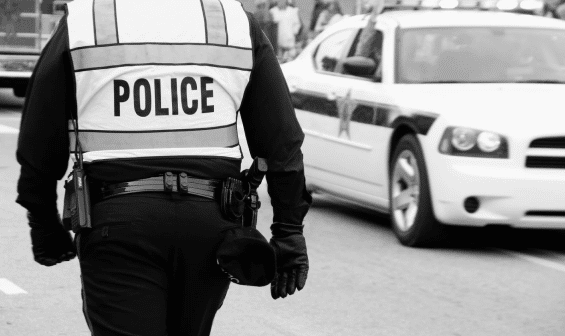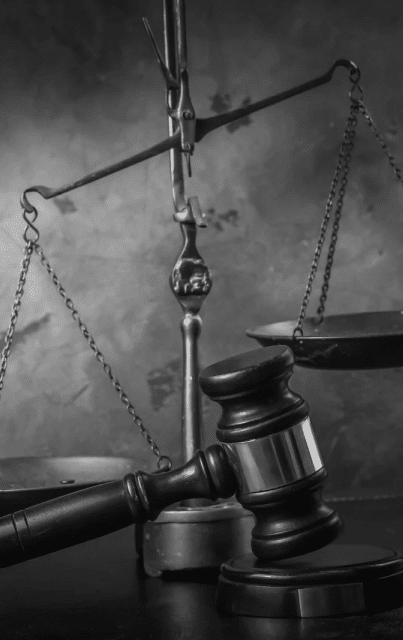Detroit Police Brutality Lawyer
The issue of police brutality has left a significant mark on Detroit’s history. Despite outrage over notable incidents of police brutality and efforts to address police misconduct, many in the city still fall victim to police violence. Police Brutality Center provides resources, support, and guidance to victims of police misconduct. We also may be able to connect you with a Detroit police brutality lawyer to help you receive justice for the wrongs committed against you and your family.
Were you or a loved one a victim of police brutality?
Attorneys that work with Police Brutality Center may be able to assist you.
"*" indicates required fields
Content Last Updated: October 14, 2025
Although the city has taken some important measures to curb police brutality in Detroit, it remains a significant concern for much of the community. Numerous incidents over the years urgently highlight the need for justice and accountability in Detroit’s police force.
Victims and their families grapple with these incidents’ physical, emotional, and legal aftermath. Seeking answers and justice in a system that has faced the same challenges for decades can feel hopeless, but we can help you seek justice.
Police Brutality Center understands the difficulties police misconduct cases pose and your challenges as a victim. We are committed to providing relevant, timely advice and connecting you with Detroit police brutality lawyers who can help.
History of Police Misconduct in Detroit
Detroit has a complex relationship with law enforcement. Detroit has a long history of police brutality incidents, often putting it at the forefront of the great national controversy about civil rights, race, and the role of police officers in our society.
From the infamous 1967 Detroit Riots—sparked by a police raid on an unlicensed bar—to more recent incidents, the city’s history is replete with police brutality and questionable behavior by law enforcement officers. These events have shaped the city by influencing policies and public opinion while fueling local statistics on police violence.

Notable Police Misconduct Cases
Detroit has a long list of incidents of police misconduct that reflects deeper, systemic issues. However, several cases stand out for their gravity and impact on Detroit and its people:
- Malice Green, 1992: Malice Green, a 35-year-old Black man, died after two white police officers confronted him. The officers beat Green relentlessly with metal flashlights even though Green did not fight back. Police officers cuffed Green before medical personnel could attend to him. He suffered a seizure and was pronounced dead at a local hospital. The incident occurred approximately 18 months after the Rodney King beatings in Los Angeles. Green's killing struck a chord with many throughout Detroit and the U.S. Detroit settled the incident with Green's family for $5.25 million.
- Aiyana Stanley-Jones, 2010: Aiyana Stanley-Jones was a seven-year-old Black girl killed during a police raid when a round fired by a Detroit police officer struck her while sleeping on a couch. The incident sparked outrage throughout Detroit as people called for police reform and better training for high-risk operations officers. Detroit settled with Aiyana's family for $8.25 million.
- Terrance Kellom, 2015: Terrance Kellom, a 20-year-old Black man, was shot and killed by a federal agent during a raid at Kellom's home. The incident raised questions about the use of force and the accountability of federal agents. The federal agent in question did not face criminal charges for the shooting.
Police Misconduct Laws in Detroit
Detroit has specific laws aimed at reducing police misconduct:
Excessive force: Detroit has adopted official policies defining excessive force and outlining the parameters for acceptable police behavior during interactions with the public, including arrests.
Racial profiling and ethnic intimidation: Michigan’s ethnic intimidation statute prohibits officers from racial profiling or targeting people based on race, ethnicity, or national origin. The law attempts to protect Michigan residents and ensure they receive fair treatment.
Civil Rights: Federal law provides that individuals deprived of their civil rights can sue the government under the Civil Rights Act of 1871, 42 U.S.C. § 1983, to seek damages.
Despite these laws and policies, challenges remain. Enforcement is inconsistent, and there are questions regarding transparency and accountability.
What is the Statute of Limitations for Civil Rights Cases in
Michigan?
The statute of limitations sets the deadline for filing suit. Civil rights lawsuits are federal cases. However, federal laws do not specify a deadline. Instead, courts must follow the state laws governing these deadlines.
In Detroit and the rest of Michigan, the three-year statute of limitations applies in most cases. However, in rare cases, there may be exceptions.
Why Work With a Police Brutality Lawyer?
Police brutality incidents can leave a physical and emotional toll. Combined with the legal technicalities, this can prove overwhelming for many. A police brutality lawyer is an invaluable ally for several reasons, including:
- Deep understanding of civil rights laws: Your police brutality lawyer should be well-versed in civil rights law. They should understand and protect your rights.
- Experience with complex investigations: Police brutality cases often involve intricate investigations. Your lawyer should have access to resources such as private investigators and forensic experts. They can analyze police reports, scrutinize video footage, and cross-examine witnesses to help build a strong case.
- Negotiation skills: While some cases go to trial, many settle out of court. A seasoned Detroit police brutality lawyer has the negotiation skills you need to secure a fair settlement.
- Holding authorities accountable: Your police brutality lawyer in Detroit can hold authorities accountable for their actions. By challenging misconduct, they can offer hope that similar incidents are less likely to occur in the future.
Filing a Civil Rights Claim in Detroit
To file a civil rights claim in Detroit, follow these steps:
- Consult with an attorney: A police brutality lawyer can confirm your claim's validity and guide you through the legal process.
- Determine the violation: Police misconduct is an umbrella term that encompasses several violations; your attorney can help you determine the exact violations for your claim.
- Gather evidence: Your attorney will investigate and collect evidence to bolster your claim's strength.
- File a complaint: Your lawyer will help you file your complaint with the appropriate authorities.
- Initiate your civil rights claim: Your attorney will file your legal claim in Detroit using the appropriate channels within the statute of limitations.
Filing a lawsuit differs from filing a complaint against a police officer or police department. A claim involves a legal suit handled by a civil court, while the complaint will be filed with and acted on within the police department. Sometimes, it is wise to pursue both options. You should speak with a police brutality lawyer before acting to understand better what each entails and create the optimal legal strategy.

Police Reform and Legislation in Detroit
Detroit has proactively implemented certain police reforms and enacted measures to ensure transparency, accountability, and the protection of civil rights. Among the reforms instituted by the city are the following:
- Chokeholds are banned.
- Police are prohibited from firing at and from a moving vehicle.
- Officers must report the use of excessive force.
Detroit Police Department Integrity Unit
The Integrity Unit is a division of the Detroit Police Department that investigates alleged misconduct by police officers and city employees. It recently faced scrutiny due to a bribery scandal involving the former head of the unit. Lieutenant John Kennedy was sentenced to two and a half years in federal prison for his role in a bribery case involving a towing company.
This incident demonstrates some challenges in ensuring internal accountability within Detroit’s police department.
Finding a Detroit Police Brutality Lawyer
The journey to justice against police brutality in Detroit is multifaceted. From filing your civil rights claim to recognizing challenges within the internal police units, it is clear that continuing efforts toward police reform are necessary.
People today still face injustice from Detroit’s police force. If you or a loved one have been the victim of police brutality, seeking legal justice may seem impossible. We can help. Experienced civil rights lawyers in Detroit are ready to help you win justice for yourself and your loved ones and work to strengthen Detroit’s laws to fight against police brutality so no more families need to suffer like yours.
If you need legal assistance for a police brutality case or need more information, we encourage you to get legal help.
